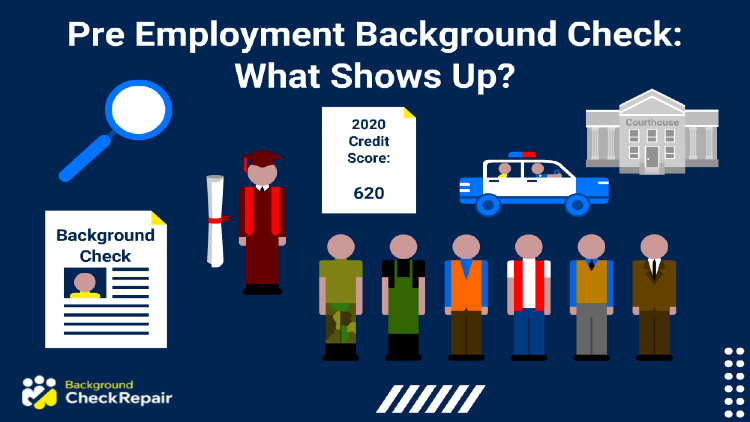
With so many people entering a rapidly changing job market, many people ask “With a pre-employment background check, what shows up?”
It’s a common question, given that the use of background checks has increased over the past few years, and because what shows up on a person’s criminal history can lead to a withdrawn job offer after a failed background screening.
To make matters worse, trying to figure out what may appear on a background investigation for employment can be a confusing and exhausting task. Every state can be different.
People wonder:
These and many other queries are just some of the problems that can plague applicants in the job market.
Fortunately, the information needed for most records checks is relatively simple. Plus, knowing a few basic local and federal laws can go a long way and allow anyone to check their own criminal background quickly and accurately so they can work to remove damaging information from a background check report.
Pre-Employment Background Check: What Shows Up on the Screening
When it comes to pre-employment background checks, virtually all checks will fall into one of two categories: Name-based checks or fingerprint-based checks. (Although some federal and government jobs search for much more information, and some healthcare positions run a level 3 background screening, these are the most common.)
Although name-based checks (also called level 1 checks) are far more common and what can be expected from basic retail (like Walmart), food industry, and other entry-level professions, fingerprint-based checks include the checks in a name-based check and are becoming more and more prevalent.
Keep in mind that similar checks are run by non-profits and volunteers are not exempt.
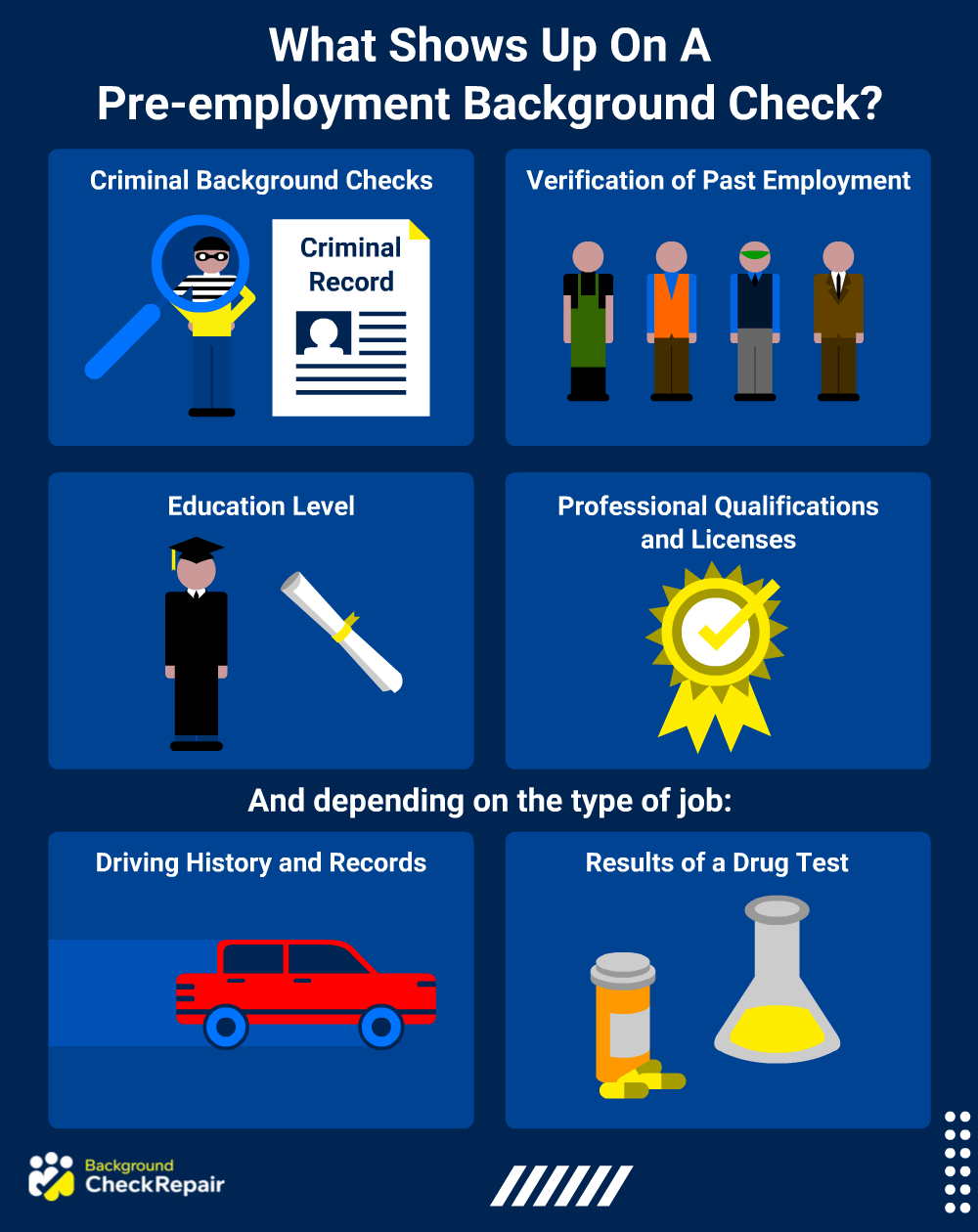
However, fingerprint-based checks are still rare outside of certain industries.
Name-Based (Level 1) Background Check
A name-based level 1 check is fairly simple. The employer, or a background check company hired by the employer, will use the name of the applicant (full name including middle name), and usually, social security number, to run a handful of basic background checks.
The information is entered into various databases, such as local court records, local and state police records, sex offender registries, 1 state courts, and E-verify databases. This is the kind of background screening that many people have already undergone as part of a typical application process.
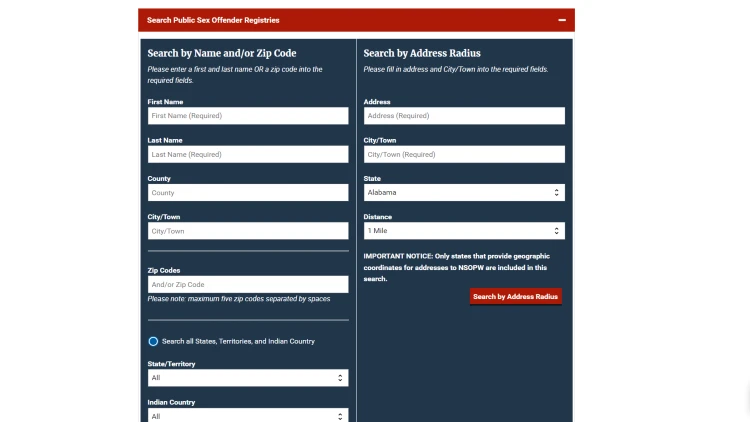
Fingerprint (Level 2) Background Checks
Name-based checks are the most common for a few reasons, it’s both cheaper and quicker than a fingerprint-based check. Getting someone fingerprinted can add a few days to the process by the time the individual is able to physically go to where their fingerprints are taken, such as the post office, and after that, the fingerprints are often sent by mail to the agency that will run the fingerprints through a database.
This will often add about a week to the background check process as well as the additional cost of getting fingerprinted which is often covered by the employer. However, there are ways to speed up the process for fingerprint healthcare checks, and other industries using digital transfers.
But, all of this extra time and money is spent on a process that is only slightly more thorough than a name-based check. Most entry-level positions simply do not deem it necessary.
Fingerprint-based checks are still essential for certain job fields, ensuring that an individual is not going to pose a risk to other employees, customers, or the company itself. Industries that commonly require fingerprint-based checks include:
With a “pre-employment background check, what shows up” inquiry, although the search method may be different, both fingerprint-based checks and name-based checks go back about 7 to 10 years.
Specific industries may also require educational history to be validated (transcripts and diplomas), which is not typically included on a normal level 2 records check.
What Shows Up on a Background Check for Employment: Criminal Records Search
Although not the only aspect of a pre-employment background check, the criminal records search is often the most important part of a background check, and this can take time. Individuals who have a criminal history may be wondering what exactly shows up.
One quick way to find out is to run a records check on yourself.
Although a handful of states have laws that prevent certain items from showing up, such as Kentucky, 2 in general, the following records will be a part of a typical criminal records search:
- Felonies
- Misdemeanors
- Arrest records
- Dropped Charges
- Dismissed Charges
- Summons and Bookings
So, to answer the question of “pre-employment background check what shows up,” the short answer is… everything that the law allows.
As mentioned, there are several exceptions to this, but most are quite rare. The first is that sealed and expunged records, such as juvenile criminal records will not show up on a background check. There are also several states that have laws regarding how far back a background check can go.
In these states, a criminal history check can only go back 7 years. Any criminal history record beyond that can not be reported as part of the background check. There are exceptions to this rule as well, mainly involving how the job’s annual salary. Other states are 10-year background check states and can search records indefinitely.
There are also a handful of states that don’t allow certain kinds of records to show up on a background check. For example, California does not allow misdemeanor marijuana offenses 3 to be reported if they are older than two years old. Also, Kentucky only allows convictions to be reported as part of a background check, so charges that were dropped or dismissed can not be reported.
Exceptions aside, the vast majority of criminal record searches will reveal all criminal history information. This is because both law enforcement and court databases are searched as part of a typical background check.
What Shows Up on a Background Check for Employment: Credit History Records
Credit checks are another kind of background check that will be performed for certain jobs and in certain industries. Although uncommon, many jobs in the finance industry or any job that has access to a business’s financial records will likely require applicants to pass a credit history check as a condition for employment, in addition to the other typical background checks.
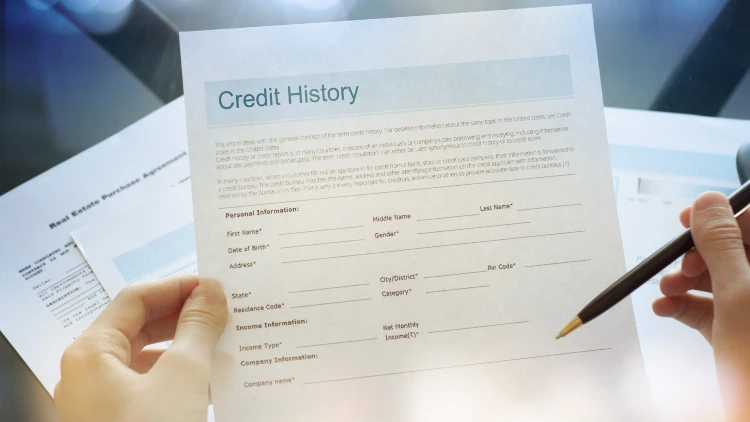
For a credit pre-employment background check what shows up? The answer is the same as almost any credit history check. Similar to the kind of checks that are run when taking out a loan, the background check will include verification of basic information such as name, previous addresses, and social security numbers to start.
With that completed, the check will then look into an individual’s credit and tax liabilities. This can include any kind of debt such as a credit card, student loan, or mortgage. Information on late payments, loan defaults, foreclosures, etc. will also be revealed.
Generally, these checks are performed to ensure that an individual who is going to have access to large amounts of a company’s finances is good with money. Many of these jobs will also include extra checks to ensure the individual has not been convicted of any financial crimes.
What Shows Up on a Background Check: Driving Record Employment Background Check (MVR)
Another job-specific check is a driving record employment background check. This is also known as a Motor Vehicle Record check (motor vehicles check). This report is generally obtained from the Department of Motor Vehicles (DMV) and will include information such as the individual’s driver’s license information, speeding, and other vehicle-related crime information as well as information on if the individual’s license has ever been suspended.
This is another check that is rare outside of certain industries and jobs. Generally, an MVR check is only performed if the applicant will be operating heavy machinery or driving a company car as part of the job duties. Someone who has a history of speeding or drunk driving poses a massive liability to a company, and certain DOT jobs have automatic disqualifiers.
What Shows Up on Pre-Employment Background Check: Identity and Social Security Verification
Identity and Social Security Verification is the bare minimum check that will be a part of virtually every pre-employment background check.4 If the business is performing any kind of background check at all, identity verification will certainly be one of the checks.
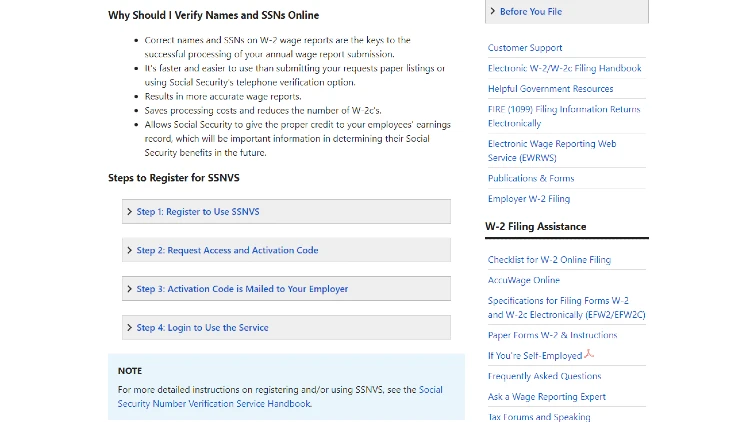
The goal of identity and social security verification is very simple: ensure the applicant is who they say they are. Verifying that the individual is using their official name and not an alias is crucial to avoid any legal ramifications from hiring an individual who is attempting to hide from law enforcement or is in the country illegally.
Ensuring that the business is aware of the official name of an applicant will also help to ensure that criminal records checks, sex offender registry checks, and MVR checks will uncover the proper information.
Social media background screenings s are a more recent background check that is becoming more common, such as part of a dating background check. However, there are several caveats and laws that make them somewhat difficult to perform for many employers.
First off, what is a social media check? A social media check usually involves searching for any and all social media profiles for an applicant and using the information on the applicants’ profiles to aid in hiring decisions. This is done in a number of ways. Many employers will use social media checks to verify certain information such as previous employers, education, etc.
The most common reason a social media check is performed is to ensure that the applicant is a good fit for the culture of the company. Companies will often look for things like offensive content, illegal activity, and more to ensure that the individual does not pose the risk of casting a negative light on the company.
Many companies will also use social media to ensure that employees are following certain company policies such as supporting competitor brands or posting confidential information about the company and its dealings.
As mentioned, social media checks can delve into a legal gray area in many jurisdictions. For example, many states have outright banned employers from requesting social media information from an employee. Asking an employer for usernames or passwords is often prohibited, as well as requesting the employee accept a friend or follow a request, or asking the employee to change their privacy settings to allow the employer to openly view the applicant’s profile are all illegal in most states.
Despite these laws, it is still technically legal to search for an applicant’s social media profile and view it if possible. However, even this poses several legal issues for the employer as they might accidentally learn information about the applicant that the applicant has a legal right to keep private. Looking at an applicant’s social media profile will likely reveal information such as their gender identity, sexual orientation, religion, political affiliations, and more. All of this poses a major legal risk to the employer.
The majority of employers that perform social media checks generally do it by paying the costs of a background check for a background search company that can closely adhere to the laws surrounding these kinds of checks and take the liability away from the employer. Still, in states with social media check laws, like Tennessee, a private social media profile is still an effective roadblock.
How Far Back Do Pre-Employment Background Checks Go?
Most pre-employment background checks can go as far back as the state allows for criminal information. Education verification, employment verification, and others have no time limits whatsoever when it comes to how far back they can go.
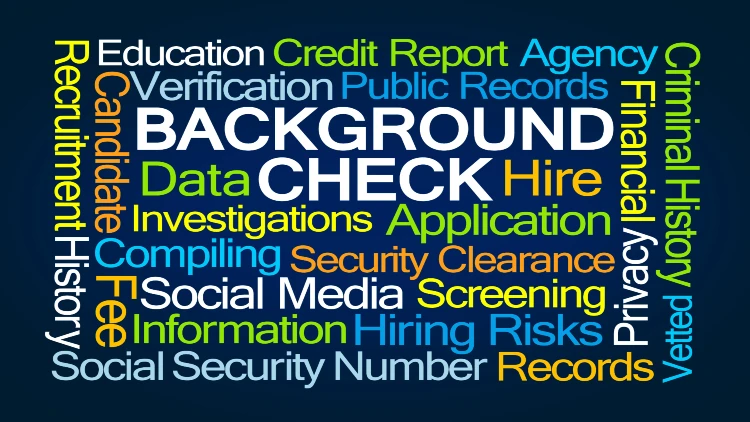
For criminal records checks, this is not always the case. Although most states allow pre-employment criminal records checks to go back indefinitely, several states have laws that prevent these checks from going back more than 7 years. This is known as the 7-year rule and the states that have these laws are as follows:
Even in the above states, there are exceptions to the seven-year rule. Most of the exceptions involve the salary of the position as well as special exceptions for law enforcement jobs.
How Long Does a Pre-Employment Background Check Take?
A typical pre-employment background check should take less than a week. In many cases, the check is performed using online databases meaning the entire check can be performed in less than 48 hours depending on the day of the week.
If the background check is more exhaustive and requires education checks, reference checks, employment verification, and checks of more unique databases this will often take longer. Many of the aforementioned checks must be completed by directly contacting the past employer, school, etc. which means the check will be at the mercy of whoever the background check agency is contacting.
A fingerprint-based check will likely add about a week to the process, between getting fingerprinted and sending the fingerprints to the agency performing the check, and the check itself.
What Do Job Background Checks Look For?
For a pre-employment background check what shows up? Background checks can look for all sorts of things. Generally, all these checks come down to answering very simple questions:
- Does the applicant pose a liability to the employer?
- Is the applicant being truthful?
Criminal record checks, sex offender registry checks, driving record checks, and others all aim to ensure that the employee does not pose a risk to the company. This risk is usually financial, such as if the applicant is likely to steal from the employer or cost the employer money in loss of revenue or due to legal fees. The safety of the staff and customers is also in consideration as well.
On the other hand, education verification, social security verification, identity verification, employment verification, and other similar checks all aim to ensure the applicant is who they say they are and is capable of performing the job duties. However, this can pose a legal risk to a company if an employee is untruthful, and the time an employee lies on an application is serious, even if the lie is small or seemingly inconsequential as it is seen as a reflection of the applicant’s character.
Many jobs will also require applicants to pass a drug test as a condition of employment. This is a check that seeks to ensure the safety of the employees as well as protect the company from any legal issues involving an employee being under the influence of drugs during their job duties.
How Do I Know If I Passed My Background Check?
Whether the background check is passed or not, most jurisdictions require the employer to notify the applicant regardless. This is most often done through the standard method of contact for the entire application process such as an employer’s online hiring portal, email, or phone.
Individuals who pass their background check will likely hear back within a week with a phone call from the employer. For individuals who did not pass their background check the process will be slightly different.
If the background check was not passed due to something that will automatically disqualify the individual from the job, this will often be made clear when the employer reaches out and will most often be done in a more official way than what might be expected.
This is because there are federal laws outlined by the FCRA 1 that dictate how an employer is to notify an individual who failed a background check. Employers must lay out specific reasons that the check failed such as the findings of the criminal records search. In these cases, the applicant will be contacted by mail or email, as the reason for disqualification must be in writing, per federal law.
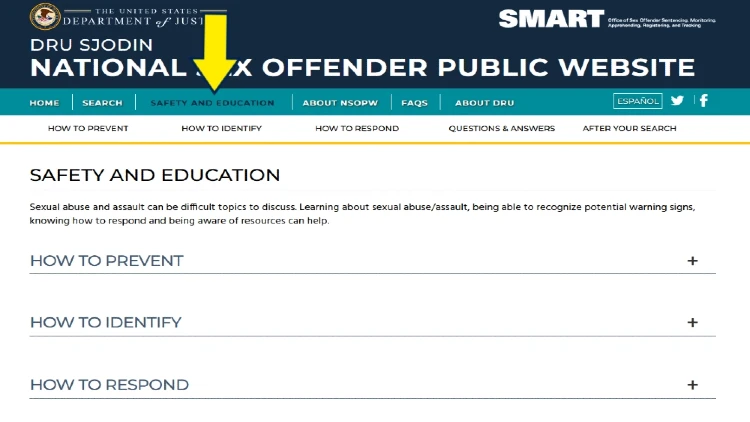
Individuals who fail a pre-employment drug screening will likely not be contacted by the employer. Although some employers perform their own drug tests, most outsource this to a drug-testing company. In this case, the company that performed the drug test will contact the applicant with the results.
This does not necessarily mean the individual will be disqualified for the job, instead, the drug-testing company will give the applicant the option of notifying the employer of the results and allowing them to make the hiring decision or to withhold the results from the employer, which will result in the applicant being disqualified from consideration.
When wondering about a pre-employment background check, what shows up? The answer is almost anything the employer wants, and as much as the law will allow. Although there are laws that protect an applicant’s privacy, what shows up on a background check for employment is mainly up to the employer. Still, understanding the basic laws and the process can be helpful when asking about a pre-employment background check, what shows up?
Frequently Asked Questions About What Shows Up on a Background Check for Employment








